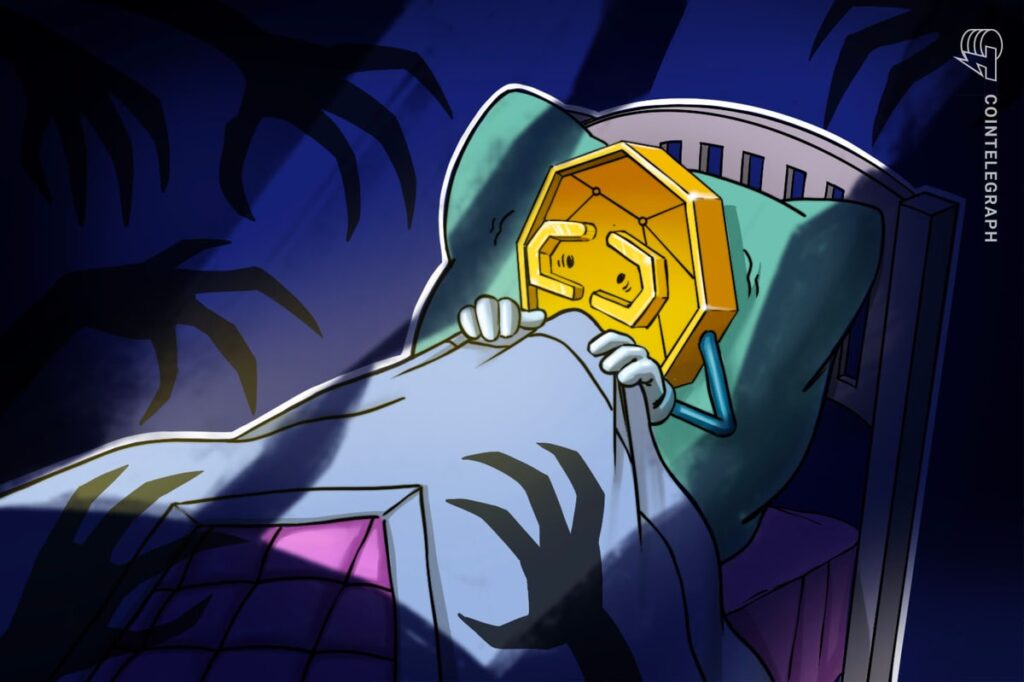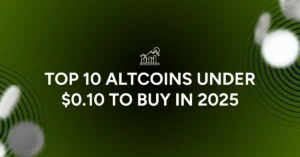Roaring Kitty’s Game Stop game is a threat to the market.

In terms of entertainment value, the highlight of the year has been the reappearance of vigilante investor Roaring Kitty. But the massive volatility and questionable trading it has sparked is not something to be celebrated – indeed, it's a worrisome sign.
Kitty, real name Keith Gill, came out of retirement on May 13, delighting keyboard warriors everywhere and sparking a 180% increase in GameStop stock, which flew from $17.46 to $48.75 at the close of trading on May 14.
A few days later – on May 17 – the company announced that it had sold 45 million shares, capitalizing on the pump to raise nearly $1 billion in treasury. At the same time, preliminary results predicted a loss of $27 million to $37 million last quarter.
Related: Oslo Freedom Forum: The Best Bitcoin Conference That Isn't About Bitcoin
Ironically, GME stock fell more than 30% on the news – the slide was only limited by the company's decision to announce on Friday (unlike crypto, stock markets are closed on the weekend so Friday is the best day to announce bad news). The following week, shares continued to bleed to a low of $18.32 as of May 23, with some recovery seen at the end of the month. [Source: Google Finance].
Then, on June 6, our boyfriend announced that he was going live the next day. These snapshots of Gill's portfolio show GME stock worth north of $586 million and about 120,000 short-term call options at $20, up more than 80% from $26.50 to $46.
In his live stream, which opens with a video of kittens playing, a bandana-and-sunglasses-clad Gill expresses his faith in the leadership of Ryan Cohen and his “crew.” Meanwhile, hedge funds like Citron Research, which took a 100% loss on shorting GameStop during Kitty's first campaign in 2021 and announced shorts in the stock again in May — called the order “an insult to the capital markets.”
While all this was going on, Cohen and his staff were pushing to deliver those quarterly results in three days (and on a Friday), instead of next Tuesday as previously stated.
These results showed a first-quarter loss of more than $32 million, or $0.12 per share, compared with expectations of $0.09. GameStop announced another stock sale that raised more than $2 billion in cash due to the surge in prices caused by Kitty's live streaming announcement.
Remarkably, shares fell more than 50% on the report, after Gill sparked a buying frenzy that caused the NYSE to halt trading 38 times amid high volatility.
Two days later, on June 9, our favorite memester posted on his X profile a cat face taken from one of the Batman movies, replacing the mask worn by the Joker before the still bank robbery. We might imagine that Cohen, on his $3 billion cash pile, would see Game Stop in a nuclear winter, folded for good at once.
While this is all great fun — and we all love the Robin Hood character of robbing hedge funds to feed heavily indebted college graduates — this market correlation is extremely dangerous.
Indeed, questions should be – and are being – asked. On June 4, the Massachusetts Secretary of State's Office announced that it would investigate Mr. Kitty and his GameStop businesses, many of which coincided with the price volatility the move caused. Indeed, with Gill's common stock nearly doubling since June 7, it's interesting to note that the options are gone.
In crypto, we use these types of high jinks. However, in traditional finance, similar events are sometimes labeled market manipulation – or insider trading or fraud.
Related: Ether ETF approvals show staking may still be a security in SEC eyes
It doesn't matter if meme coins rise and fall daily with the Gatorade levels their creators use because the losses here are relatively small. In fact, with a market cap of $45 billion, the entire meme coin sector doesn't even account for 1.5% of Microsoft's market cap.
As the GME fiasco shows, however, the “memeificaton” of stock markets is a more worrying trend. Analysts point out that the behavior of this company and its shareholders is insane – if they think the price is low, they don't sell, and if the company is bleeding money, they don't buy.
While no one is shedding a tear over the losses suffered by hedge funds, the cult of kitty is causing volatility, highlighted by the NYSE's frequent halts in trading due to frequent volatility. Indeed, this is the risk that the ironically named Robinhood investment platform is marketing during the 2021 frenzy. Morgan Stanley is reportedly considering removing the account it saw in one of Gill's screenshots from its MS e-trade platform (GameStop shares fell 5% on the news).
Regardless of what you think about limiting marketers' reach—and frankly, I agree a little—in the real world, the rise of YouTube influencers is not a positive development. Dogecoin entrants make their beds to sleep, but I certainly don't sleep when traders like Keith Gill move enough YOLO'ers through Charles Schwab's account to disrupt the actual stock market.
Many point to the fact that when the Securities and Exchange Commission investigated the first wave of GME-inspired meme stock trading in 2021, it came up with the bookis, and it could come with the bookis again. But if I were Mr. Kitty, I'd be a little worried. And if I were a multi-billion-dollar hedge fund or Morgan Stanley, I would be old enough to understand the point.
Lucas Kiely is the Chief Investment Officer of the Product Application, where he oversees investment portfolio allocation and leads the expansion of the diversified investment product range. He was previously Chief Investment Officer at Diginex Asset Management, and was Senior Trader and Managing Director, QIS and managed the structured derivatives business at Credit Suisse in Hong Kong. He was Head of Special Derivatives at UBS in Australia.
This article is not intended for general information purposes and should not be construed as legal or investment advice. The views, ideas and opinions expressed herein are solely those of the author and do not necessarily represent the views and opinions of Cointelegraph.













